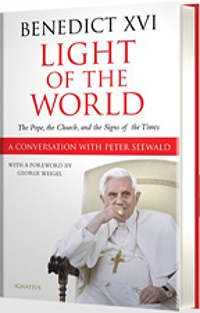Pave Benedikts fredsbudskap: «Religionsfrihet, veien til fred»
Nå er en norsk oversettelse av pave Benedikts budskap på verdensdagen for fred på plass. Jeg har forgjeves sett etter det de siste dagene (og trøstet meg til den engelske utgaven), men jeg ser nå at det ble lagt ut på nettet i går kl 15.23. Paven har satt som overskrift over årets fredsbudskap: «Religionsfrihet, veien til fred», og åpner det slik:
Ved begynnelsen av det nye året sender jeg dere alle gode ønsker om sjelefred og velbefinnende, men spesielt om fred. Dessverre har det året som nå snart er over, igjen vært markert av forfølgelse, diskriminering, forferdelige voldshandlinger og religiøs intoleranse.
Mine tanker går på en spesiell måte til vårt elskede land Irak, som fortsetter å være skueplassen for vold og strid, samtidig som det nå jobber for en fremtid med stabilitet og forsoning. Jeg tenker på de nylige lidelsene i den kristne kommuniteten, og særlig på det klanderverdige angrepet på den syrisk-katolske Vår Frue-katedralen i Bagdad, hvor to prester og over femti troende ble drept da de samlet seg for å feire den hellige messe. … …
… I denne sammenhengen har jeg sett det som særlig riktig å dele noen refleksjoner over religionsfrihet som veien til fred. Det er smertefullt å tenke på at i noen områder av verden er det umulig å praktisere troen fritt, uten risiko for liv og personlig frihet. I andre områder ser vi mer subtile og sofistikerte former for fordommer og fiendtlighet overfor troende og religiøse symboler. For tiden er kristne den religiøse gruppe som lider mest under forfølgelse grunnet sin tro. Mange kristne erfarer daglig krenkelser, og ofte lever de i frykt fordi de søker sannheten, tror på Jesus Kristus, og deres hjertefølte bønn om respekt for den religiøse frihet. Denne situasjonen er ikke akseptabel, siden den representerer en fornærmelse overfor Gud og den menneskelige verdighet. Videre er den en trussel mot sikkerhet og fred, og en hindring for å oppnå en autentisk og integrert menneskelig utvikling.
Religionsfrihet uttrykker det som er unikt ved den menneskelige person, for den tillater oss å rette vårt personlige og sosiale liv mot Gud. I hans lys vil personens identitet, mening og formål fullt ut bli forstått. Å nekte eller vilkårlig begrense denne friheten er å fremme en begrenset visjon av den menneskelige person. Å kutte ut religionens offentlige rolle er å skape et samfunn som er urettferdig, fordi det unnlater å ta hensyn til den menneskelige persons sanne natur. Dette er å hindre veksten av en autentisk og varig fred for hele den menneskelige familie.
Av denne grunn bønnfaller jeg alle menn og kvinner av god vilje til å fornye sitt engasjement for å bygge en verden hvor alle er frie til å følge sin religion eller tro, og til å uttrykke sin kjærlighet til Gud med hele sitt hjerte, hele sin sjel og hele sitt sinn (jfr Matt 22,37). Dette er holdningen som inspirerer og leder dette budskap for Verdens Fredsdag XLIV, som har som tema Religionsfrihet, veien til fred. …
Hele pave Benedikts fredsbudskap for 2011 kan leses her.

 Under kan man lese en engelsk oversettelse av hele pave Benedikts julebudskap på Petersplassen i går –
Under kan man lese en engelsk oversettelse av hele pave Benedikts julebudskap på Petersplassen i går – 
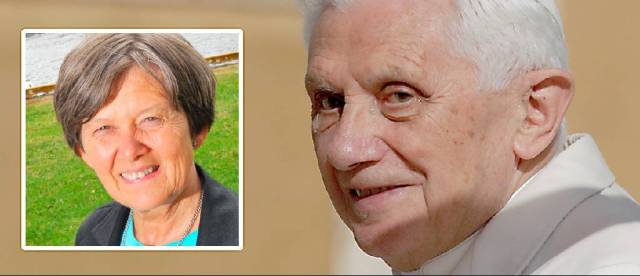
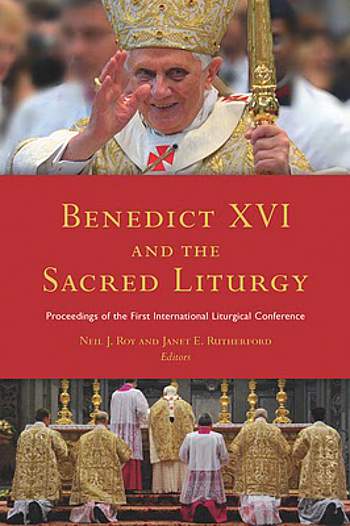 Jeg skrev om «Benedict XVI and the Sacred Liturgy» allerede i februar, boka kom ut på forsommeren, og nå har jeg fått tak i den – svært interessant. Jeg har kommet halvveis i et kapittel skrevet av Manfred Hauke (Un. i Lugano, Sveits), som heter: Klaus Gamber: father of the new liturgical movement. Jeg kommer med stoff fra dette kapittelet om ikke lenge. Her er litt om det:
Jeg skrev om «Benedict XVI and the Sacred Liturgy» allerede i februar, boka kom ut på forsommeren, og nå har jeg fått tak i den – svært interessant. Jeg har kommet halvveis i et kapittel skrevet av Manfred Hauke (Un. i Lugano, Sveits), som heter: Klaus Gamber: father of the new liturgical movement. Jeg kommer med stoff fra dette kapittelet om ikke lenge. Her er litt om det: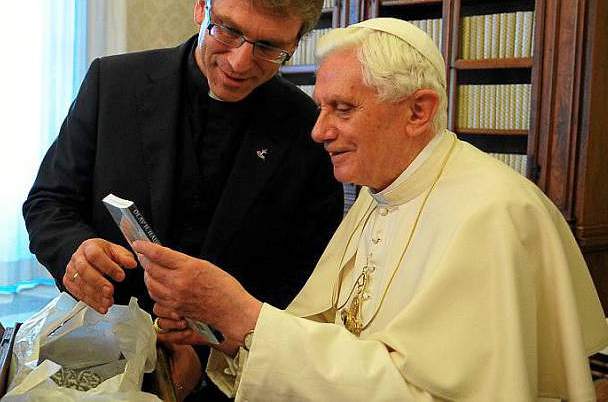
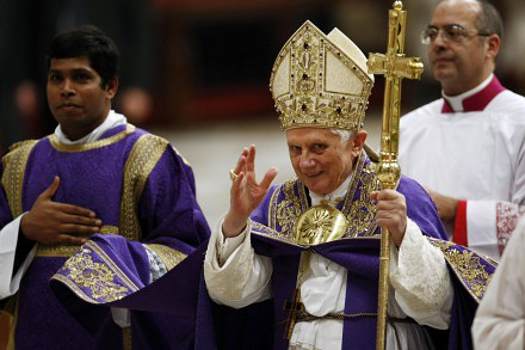 Fra The
Fra The 